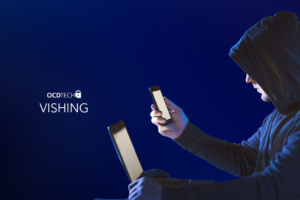Social media has become an integral part of our daily lives, but it is important to remember that it can also pose risks to our safety and privacy. This guide by OCD Tech editorial team will provide you with the basics of social media safety, including tips on protecting your personal information, avoiding scams and cyberbullying, and staying safe while interacting with others online.
Understand the Risks of Social Media.
While social media can be a great way to connect with others and share information, it’s important to understand the potential risks involved. Cyberbullying, identity theft, and scams are just a few of the dangers that can come with using social media. By being aware of these risks and taking steps to protect yourself, you can enjoy the benefits of social media while minimizing the potential downsides.
Keep Your Personal Information Private.
One of the most important things you can do to stay safe on social media is to keep your personal information private. This includes things like your full name, address, phone number, and date of birth. Be cautious about sharing this information, even with people you know, as it can be used by hackers or scammers to steal your identity or access your accounts. Use privacy settings to control who can see your posts and information, and be wary of friend requests or messages from people you don’t know.
Be Careful What You Share.
It’s important to be mindful of what you share on social media, as it can have serious consequences. Avoid sharing personal information like your home address, phone number, or financial information. Additionally, be cautious about sharing photos or videos that could be embarrassing or compromising. Once something is posted online, it can be difficult to remove or control who sees it. Always think twice before hitting the “share” button.
Use Strong Passwords and Two-Factor Authentication.
One of the most important things you can do to protect your social media accounts is to use strong passwords and enable two-factor authentication. A strong password should be at least 12 characters long and include a mix of upper and lowercase letters, numbers, and symbols. Avoid using easily guessable information like your name or birthdate. Two-factor authentication adds an extra layer of security by requiring a code sent to your phone or email in addition to your password. This makes it much harder for hackers to gain access to your accounts.
Be Wary of Scams and Phishing Attempts.
Scammers and hackers often use social media to try and trick people into giving away their personal information or money. Be wary of any messages or posts that seem too good to be true, or that ask for personal information like your social security number or bank account details. If you receive a message from someone claiming to be a friend or family member asking for money, double-check with them in person or over the phone before sending any funds. Additionally, be cautious of links or attachments in messages from unknown sources, as they may contain malware or viruses that can harm your device or steal your information.
The best defense against a cyber attack is a good offense. Contact OCD Tech team.




